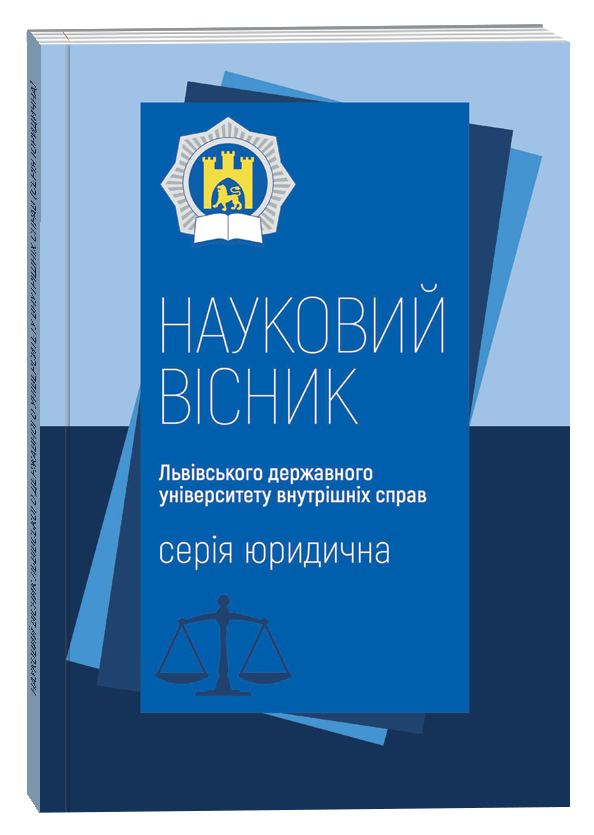ЕКОЛОГІЧНА БЕЗПЕКА ЗЕМЛІ: НЕОБХІДНІСТЬ І ШАНСИ НА ВИЖИВАННЯ ЛЮДСТВА
DOI:
https://doi.org/10.32782/2311-8040/2025-1-5Ключові слова:
правовий акт, екологічна криза, екологічна конституція, зміна клімату, процеси глобалізації, техногенне навантаженняАнотація
Анотація. Погіршення антропогенного навантаження спричинило виникнення теорії «золотого мільярда», яка акцентує увагу на нерівномірності доступу до ресурсів та можливостей. З подальшим поглибленням цих процесів зменшуються шанси людства на виживання та сталий розвиток, ставлячи під загрозу гармонійне співіснування на планеті. Ідея створення необхідного для всього людства правового акта, який би забезпечив виживання всього живого на планеті Земля, не є новою. Вона виникла ще в 90-ті роки минулого століття і стала результатом активного пошуку науковцями всього світу шляхів подолання екологічної кризи планетарного масштабу, спричиненої глобальною зміною безповоротних процесів у біосфері Землі, та негативних наслідків діяльності людини. Актуальність ідеї створення Екологічної Конституції Землі зростає з кожним роком і це насамперед пов’язано з поширенням активності процесів глобалізації, антропогенним та техногенним навантаженням, війнами, зміною клімату, погіршенням стану озонового шару Землі тощо. У червні 1992 року в Ріо-де-Жанейро відбулася Конференція ООН з довкілля і розвитку, яка отримала назву «Саміт Землі». Попри критику за недостатню конкретність і слабкість ухвалених угод, ця подія стала важливим кроком у приверненні уваги до гармонійного співіснування людини і природи. Значну роль у підвищенні глобальної екологічної свідомості відіграли зусилля науковців, громадських і релігійних діячів, а також політиків, серед яких виділяється внесок колишнього віце-президента США Альберта Гора. Альберт Гор зробив значний внесок у розуміння широкою громадськістю, політичною і бізнесовою елітою у своїй країні та всьому світі глобальної кризи довкілля та сприяв творчому пошуку ефективних шляхів її подолання. На жаль, ця ідея не знайшла підтримки в переконливості наукового обґрунтування відомих українських учених: Ю. Ю. Туниці, Ю. С. Шемшученка, Ф. Г. Бурчак, М. М. Костицького, С. А. Кравченко. Вперше ґрунтовно та методологічно ця ідея була висвітлена у статті «Екологічна Конституція Землі: сутність і концептуальні засади». Отже, стаття висвітлює актуальність створення Екологічної Конституції Землі як ключового міжнародного правового документа для збереження біосфери планети та забезпечення сталого розвитку людства. Автори аналізують сучасний стан екологічних систем, виснаження ресурсів та глобальні виклики, пропонуючи стратегії їх подолання через правове врегулювання та міжнародну співпрацю. Впровадження запропонованих механізмів дозволить ефективно реагувати на екологічні загрози, стабілізувати екосистеми та забезпечити гармонійне співіснування людини і природи.
Посилання
Туниця Ю. Екологічна Конституція Землі: сутність і концептуальні засади. Вісник НАН України. № 11. 2005. C. 32–42.
Туниця Ю. Світова Екологічна Конституція. Урядовий кур’єр. № 23. 15.06.1992.
Звернення Президента України з нагоди закриття Чорнобильської атомної станції. Урядовий кур’єр. № 236. 19.12.2000 р.
Гор А. Земля у рівновазі. Екологія і людський дух. Київ : «Інтелсфера», 2001. 393 с.
Фролов В. Ф. Екологічна безпека біосфери Землі і Космосу : монографія. Київ : ТОВ «НВП Інтер- сервіс», 2016. 300 с.
Шемшученко Ю. С. Космічне право : підручник. Київ : Юридична думка, 2012. 278 с.
Піблс Дж., Грамм Д., Тернер Е., Крон Р. Еволюція Всесвіту. Світ науки. 2001. № 2.
Кесслер Д. Прогноз засмічення комічного простору. Аерокосмічна техніка. 1989. № 1. C. 145–147.
Шевчук В., Білявський Г., Саталкін Ю. та ін. Ноосферогенез і гармонійний розвиток. Київ : Рідна природа, 2002. C. 28–35.
Білявський Г., Падун А. Проблеми і завдання сучасної екології. Вісник НАН України. № 3. C. 26–33.
Марушевський Г. Б. Етика збалансованого розвитку. Київ, 2008. 435 с.
Білявський Г., Фурдуй Р., Костіков І. Основи екології : підручник. Київ : «Либідь», 2006. 407 с.









